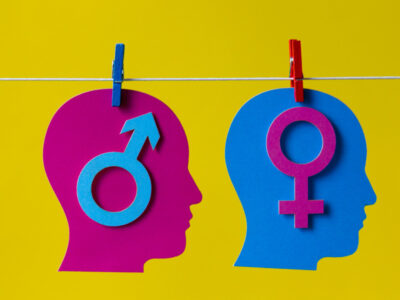Gender Identity, Race Intersections ‘Really Matter for Access to Healthcare’

From Florida to Idaho, anti-LGBTQ+ legislation has swept across the country at an alarming rate this year, largely targeted towards limiting the rights of transgender people. Over 550 anti-trans bills—more than triple the amount in all of 2022—have been proposed or passed in Republican-led state legislatures.
While many of these bills limit access to or representation in sports, bathroom use, and education, a record number are criminalizing gender-affirming care, particularly among transgender youth. Many states are proposing bills that would prohibit transgender youth from accessing hormone therapies and transition surgeries, claiming to support child protection and parental control, but these claims contradict evidence-based research on gender, as well as the advice of leading medical associations, that show this care is safe, essential, and often life-saving for transgender people.
Transgender and gender-diverse (TGD) youth, particularly TGD youth of color, have long faced discrimination in and barriers to healthcare, as well as disproportionate rates of adverse physical and mental health outcomes. As anti-trans legislation continues to increase, it is even more critical to understand the factors that contribute to these barriers.
Now, a new study coauthored by a School of Public Health researcher aims to better understand how the intersections of gender identity and race/ethnicity affect transgender youths’ access to and experiences in healthcare. Few studies have examined differences in healthcare equity among subgroups of TGD youth.
Published in the journal Prevention Science online ahead of print, the study found that Black and Latinx transgender girls/young women on average experience greater barriers to equitable care than transgender males and nonbinary youth of other races/ethnicities.
“We found that these intersections really matter for access to healthcare,” says study coauthor Allegra Gordon, assistant professor of community health sciences. “This was not a surprise given what we know from research and community advocacy about how racism, cissexism, and transmisogyny can compound each other and lead to discrimination in school, housing, employment and criminal justice systems that directly harm Black, Latinx, and other transgender women of color.”
Read more about the study here.




